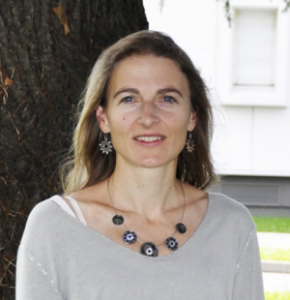On the 9th of February 2023, as part of the Polaritonics Seminar Series, we will have the pleasure to have Prof. Léonie Canet discuss “Kardar-Parisi-Zhang universality in exciton-polariton condensates“.
 When: On the 9th of February 2023 at 10:00 Central European time / 12.00 Moscow time
When: On the 9th of February 2023 at 10:00 Central European time / 12.00 Moscow time
Where: Microsoft Teams
Léonie Canet is a Professor at University Grenoble Alpes and she is also a member of the Institut Universitaire de France since 2019. She received her PhD in theoretical physics in 2004 in Paris, and was a post-doc at the University of Manchester and at CEA Saclay before being recruited at University Grenoble Alpes in 2006. Her main area of research is statistical physics, in particular the theoretical study of classical non-equilibrium systems and non-equilibrium critical phenomena, and also open quantum systems and driven-dissipative Bose-Einstein condensates. She is an expert in functional and non-perturbative renormalisation group methods. She was awarded the Bronze medal of CNRS in 2018.
Since the seminal paper by Kardar, Parisi and Zhang (KPZ) in 1986 on kinetic roughening of classical growing interfaces, the KPZ equation has arisen as a fundamental model in statistical physics for non-equilibrium scaling phenomena and phase transitions. Unexpectedly, it still unfolds new branching, such as a connection with the phase dynamics of open quantum systems displaying macroscopic spontaneous coherence.
In this talk, I will first give an overview of the realm of the KPZ equation. I will then focus on exciton-polaritons. These are hybrid quasi-particles emerging in semiconductor optical cavities from the strong coupling between electronic excitations in a quantum well and cavity photons. They behave collectively as a quantum fluid, featuring a Bose-Einstein condensation, which is genuinely out-of-equilibrium because of its driven-dissipative nature. I will explore the connection between the exciton-polariton condensate and the KPZ universality, and show that it extends well beyond the mere KPZ critical exponents. I will present results from both numerical simulations and a recent experiment.